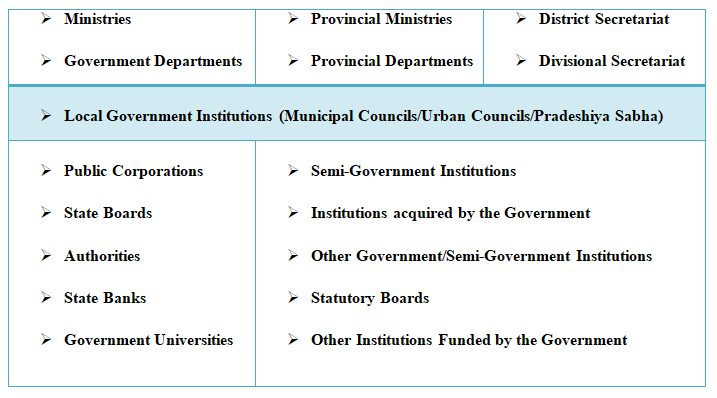About Ombudsman
Role of the Parliamentary Commissioner for Administration (Ombudsman)
Role of the Ombudsman
The Office of the Parliamentary Commissioner for Administration (Ombudsman) could be considered as a key institution through which any person can seek relief when his/her fundamental rights are violated or other similar injustice is caused by administrative decisions taken by the officials of the State or Public Corporations, Local Government Institutions or other similar institutions in order to avoid such injustices.
Appointment of the Ombudsman
It is an office established under Article 45 of the 19th Amendment to the Constitution read with Article 156 of the Constitution of the Democratic Socialist Republic of Sir Lanka. In terms of Article 41 (C) of the 19th Amendment to the Constitution, His Excellency the President shall appoint a suitable person to the said position, pursuant to the approval of the Constitutional Council upon the recommendations made to the Council by the President. The Ombudsman can be removed from the office only after adopting a resolution in Parliament.
Powers and Functions of the Ombudsman
By virtue of powers vested by the Act, No.17 of 1981 as amended by the Act, No.26 of 1994, main function of the Parliamentary Commissioner for Administration (Ombudsman) is to make fair recommendations, having conducted inquiries upon receiving complaints of violation of fundamental rights or other similar injustices which have been or is being or likely to be caused imminently, by the acts of a public officer, an officer in Provincial Councils or an officer of Public Corporations or another similar institution.
The Officers mentioned above are the officers functioning in the following institutional structure.
Institutional Structure

Complaints which may not be investigated by the Ombudsman
- Requests for employments/houses. (Section 10(2) of the Act)
- Matters relating to public security and the matters in relation to the provisions in the Public Security Ordinance. (Section 11(b) (i) of the Act)
- Complaints connected with the terms and conditions of the service of any person who is or was a member of the Armed Forces, Police Force or other Forces charged with the maintenance of public order. (Section 11(b)(iii) of the Act)
- Matters in which a decision has been pronounced or being heard in a court of law. (Section 11(b)(iv) of the Act)
- Complaints regarding appointments, transfers, dismissals or disciplinary control of public officers. (Section 11(b)(v) of the Act)
- Complaints regarding the matters which are being or had been subjected to auditing by the Auditor General. (Section 11(b)(vi) of the Act)
- Complaints made after a lapse of a long period of time. (Unreasonable Delay) (Section 13(1)(c) of the Act)
- Matters relating to public policies or cabinet decisions.
- Election issues of the Commissioner of Election.
- Complaints against disputes among private parties including private companies.
- Anonymous or unsigned complaints.
